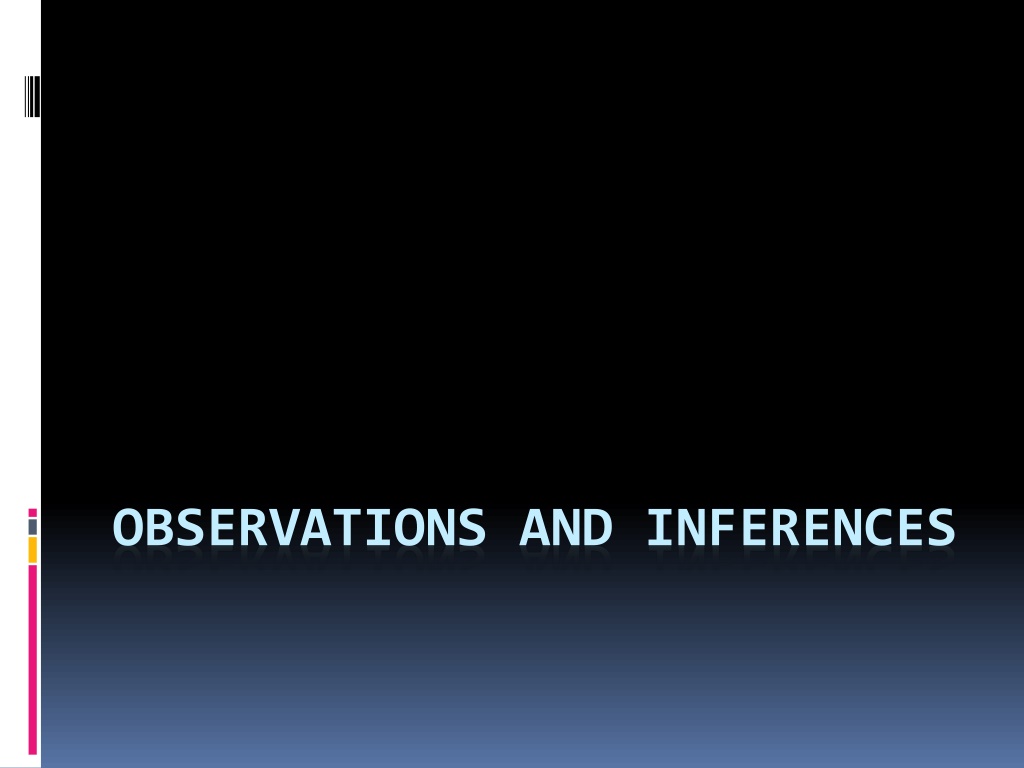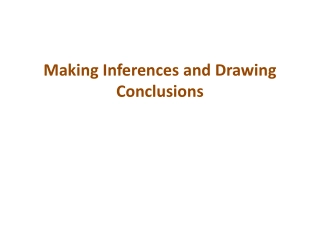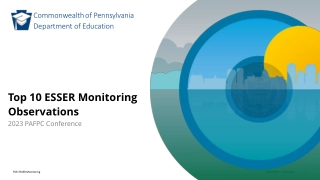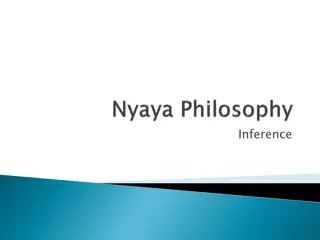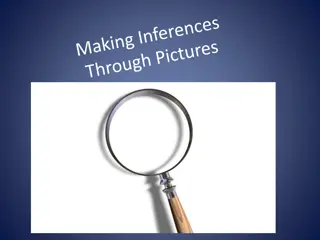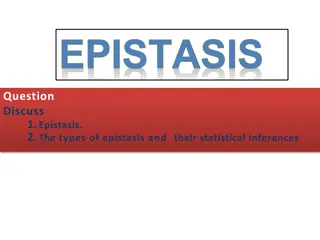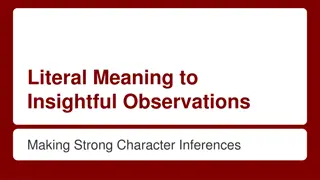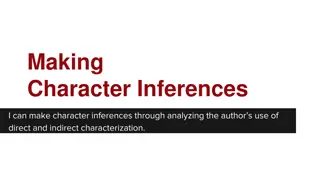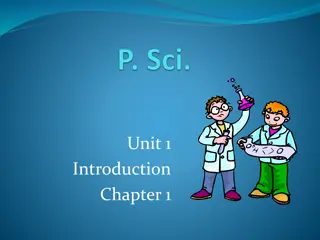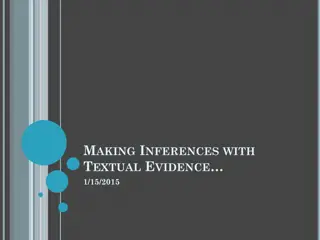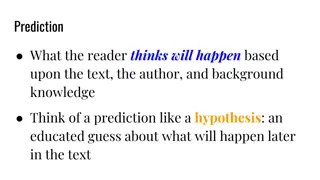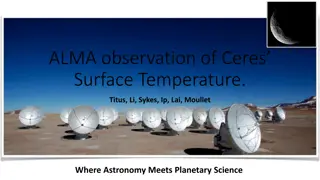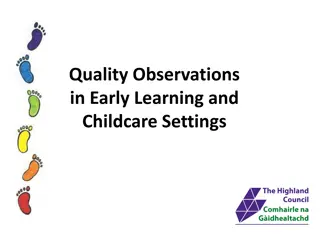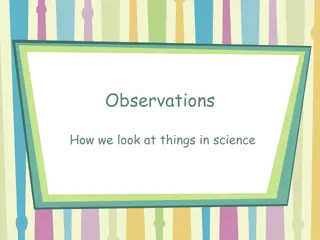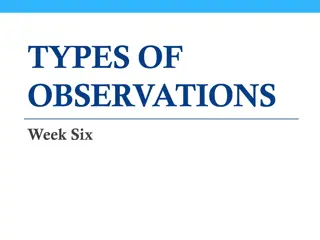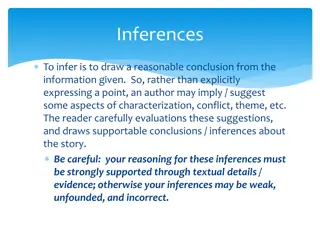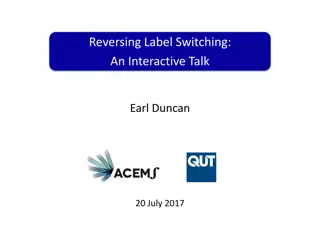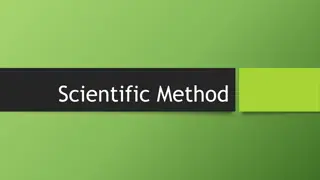Understanding Observations and Inferences in Science
Observations involve using the five senses to gather accurate and specific information, while inferences are explanations based on observed facts, not opinions or guesses. Learn to make your own inferences with examples provided.
Download Presentation

Please find below an Image/Link to download the presentation.
The content on the website is provided AS IS for your information and personal use only. It may not be sold, licensed, or shared on other websites without obtaining consent from the author. Download presentation by click this link. If you encounter any issues during the download, it is possible that the publisher has removed the file from their server.
E N D
Presentation Transcript
Observations Means using one or more of your five senses to gather information. Must be a FACT Must be specific and accurate, so that it means the same to everyone. Example: Incorrect: The burning bag smelled nasty Correct: The burning bag smelled similar to rotten eggs
Inference When you explain or interpret something based on what you observe. It is NOT an opinion or a guess! Example: You see a lot of students in the halls between classes wearing hats so you infer that one of the teams is having a hat day.
Make your own inferences! 1. All middle school students are bringing lunch from home. 2. The principal interrupts class and calls a student from the room. 3. The classroom lights are off.
